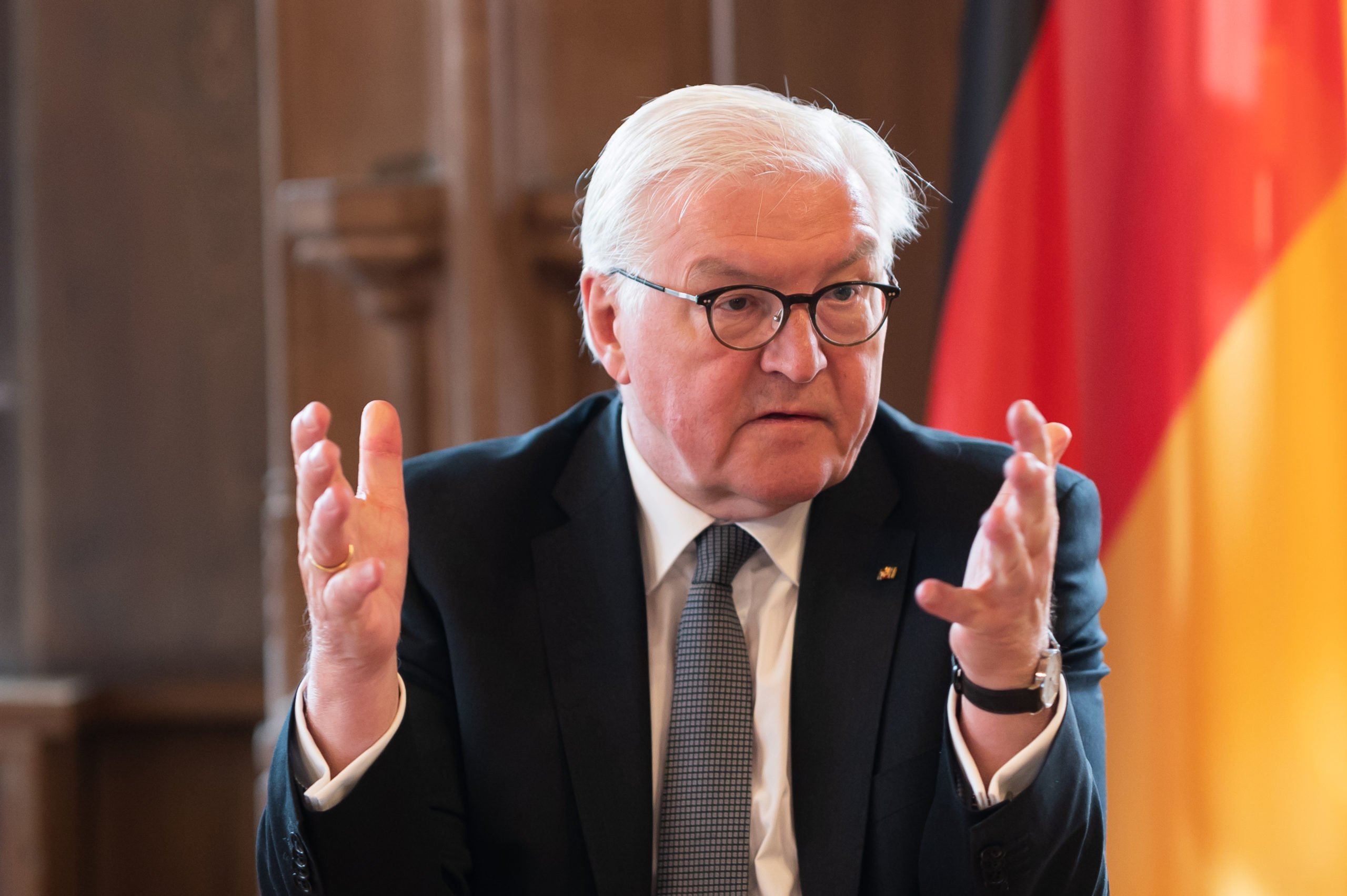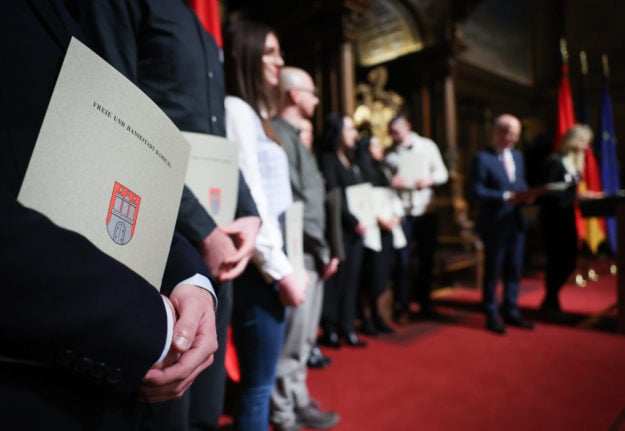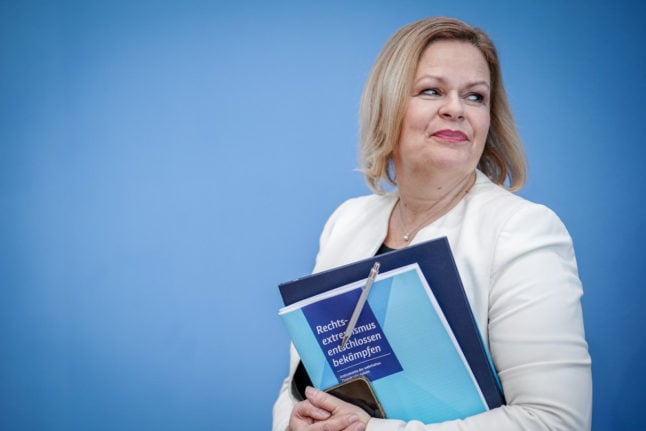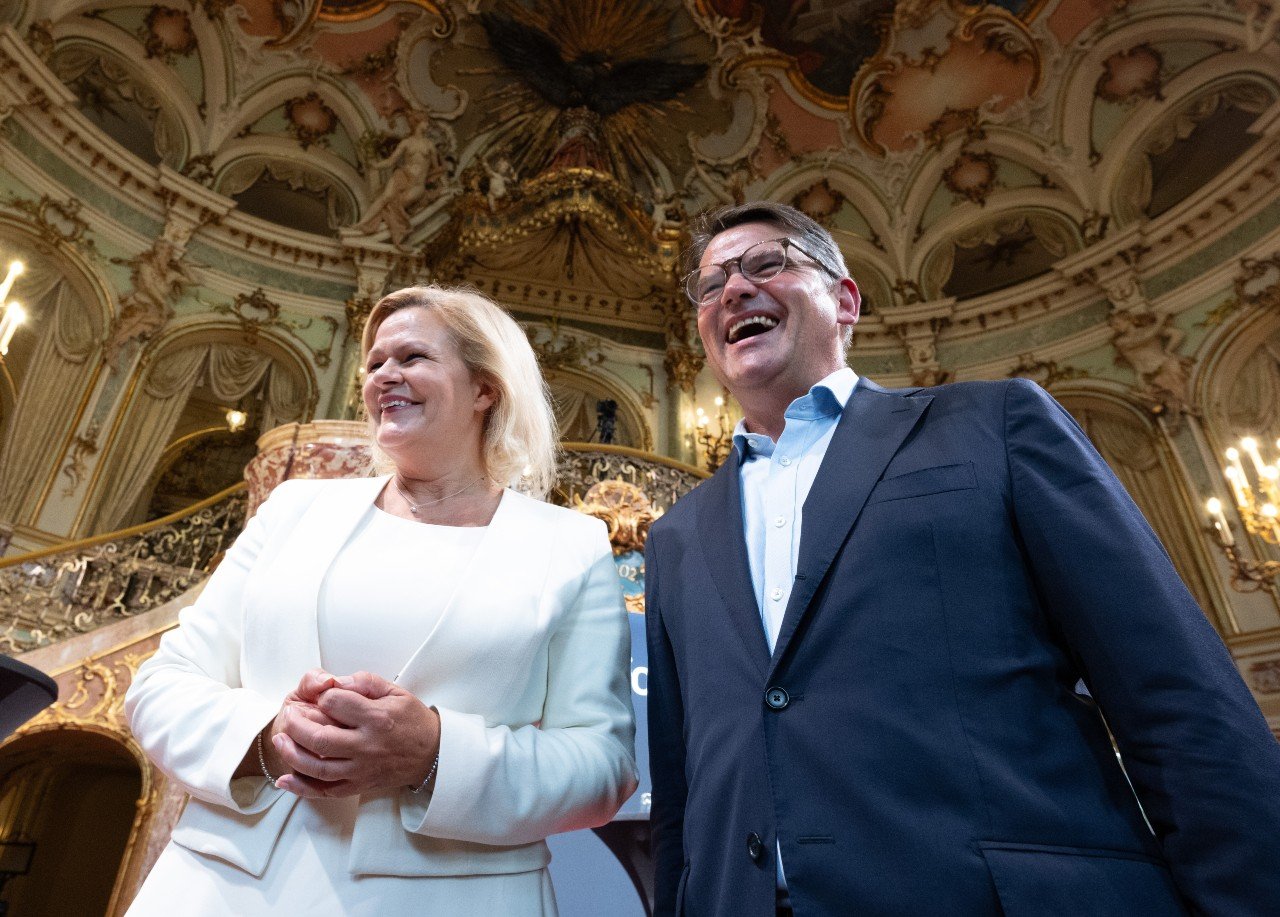What are the next steps for this draft law?
It’s almost done.
With the draft law allowing people naturalising to hold multiple nationalities now having passed both the Bundestag and the Bundesrat, the bill has cleared all its legislative votes and no longer faces the possibility of being defeated in parliament, dying in committees, or being delayed in intra-government and intra-party negotiations – which contributed to many of the delays the draft law saw over the last few years.
Chancellor Olaf Scholz and responsible ministers – which includes Interior Minister Nancy Faeser in this case – will now countersign it and send it to the Federal President for final review and signature.
READ ALSO: Germany’s landmark citizenship law passes final vote
What does the Federal President have to do with this law? How long might it take?
Germany’s Federal President – currently Social Democrat Frank-Walter Steinmeier – has a largely ceremonial and constitutional role in German politics, similar to the Crown in British Commonwealth countries. He must scrutinise all draft laws to ensure their compatibility with the German Basic Law – the country’s constitution – after legislation has passed the Bundestag and Bundesrat.
Now that both the Bundestag and the Bundesrat have passed the draft law allowing dual citizenship, as well as reducing the amount of time someone needs to have been in Germany before they’re eligible to apply for citizenship, the President’s office will begin this review. Although it’s typically a formality, this process takes a bit of time.
“How much time this takes can’t be predicted with certainty in advance,” Tobias Scheufele, a spokesperson with the Federal President’s Office, told The Local. “On average though, the review takes about two weeks. After successful verification, the President issues the order to proclaim.”

Once the President does this, Germany’s new citizenship rules are technically law.
However, even after this, there will still be a slight delay before the new rules come into effect.
KEY POINTS: What you need to know about Germany’s citizenship law reform
What’s the reason for this delay?
It’s fairly common in Germany for new laws to have a transition period from when they’re passed to when they come into effect fully and new rules are actually implemented by the German civil service.
This is typically to give public administrators time to adjust. They may do this through new staff trainings, revised application forms, and new information resources that reflect the updated rules on government websites and such.
The draft citizenship reform law specifically gives authorities three months to adjust from the time when the law is certified by the Federal President.
CHECKLIST: What do I need to apply for German citizenship under the new law?
So when might that be?
If the Federal President’s constitutional review takes around the two week average as expected – the new rules could be proclaimed as German law sometime in late February.
Counting three months from then puts the date for the new rules to actually come into force at somewhere late May to early June. This is, of course, assuming that no unexpected delays happen during the President’s constitutional review process.
The projected timing may have some implications for when people who are currently eligible to apply for citizenship – may end up deciding to do so. You can read more about that at our link below.
READ ALSO:






 Please whitelist us to continue reading.
Please whitelist us to continue reading.
I’m sure I can’t be the only British reader in their seventies interested in this topic. Can you clarify the requirements for us oldies now living in Germany?